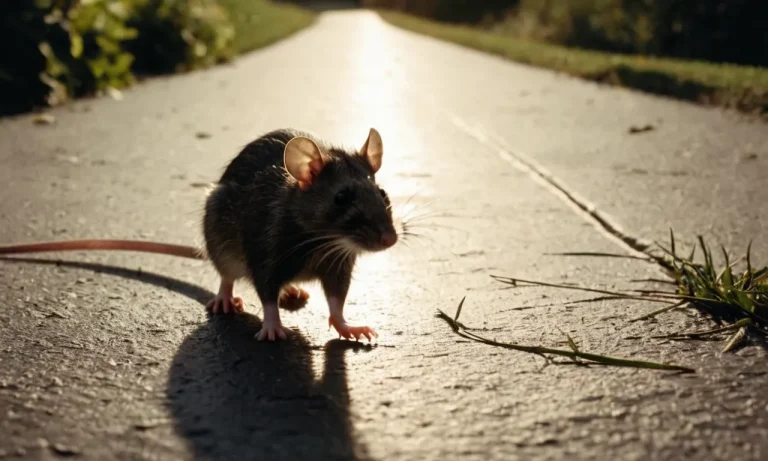The loss of a pregnancy at any stage can be emotionally and spiritually devastating. In your time of grief, you may be searching for meaning, asking ‘Why did this happen?’ This guide explores the spiritual significance of miscarriage from multiple faith perspectives.
Common Feelings and Reactions to Miscarriage
Shock, denial and disbelief
The news of a miscarriage often begins with a profound sense of shock and disbelief. Many women describe feeling numb, as if they are in a bad dream. The mind struggles to grasp the sudden loss as the expected joy of pregnancy vanishes without warning.
Thoughts of “this can’t be happening” and “there must be some mistake” are common initial reactions.
Guilt and self-blame
Thoughts of “if only I had done something differently” frequently lead to intense guilt and self-blame after a miscarriage. Women agonize over every detail of the pregnancy, looking for an explanation and a way to regain control.
But the truth is miscarriages usually occur due to chromosomal abnormalities outside anyone’s control. Reminding oneself that a miscarriage is “no one’s fault” is important.
Anger and unfairness
The profound injustice of losing a hoped-for child often manifests as anger and a sense of unfairness. Seeing others with healthy pregnancies can spark jealous feelings and rage at one’s own loss. Anger may also be directed inward or at partners, friends or medical staff.
These feelings are understandable but can damage relationships if not managed. Support groups and counseling help many constructively process these difficult emotions.
Profound sadness and grief
At the core of the miscarriage experience for most women is deep grief and sadness over the vanishing of expected life and dashed hopes. The grief is profound and real, no matter how early the loss occurs.
Making space for mourning, through counseling, memorials or rituals, and understanding from loved ones is essential. While the grief may ease in intensity over time, the existential sadness often continues, similar to the loss of any deeply hoped for life passage.
Spiritual Causes and Meanings of Miscarriage
Karmic reasons and spiritual lessons
Some spiritual teachers believe miscarriages can happen due to karmic reasons from past lives. The soul may choose to briefly incarnate in the womb to resolve karmic ties with the parents before moving on. This teaches compassion and offers closure.
As upsetting as it is, from a spiritual perspective, our souls agree to participate in these painful situations before birth because it facilitates spiritual growth.
Challenge to grow in wisdom and compassion
Miscarriage poses an immense challenge to cope with grief and find meaning in loss. Yet with support, many couples emerge with greater wisdom, resilience, empathy, and appreciation for life. This relates to the Buddhist idea that suffering deepens our capacity for compassion.
Developing equanimity and mindfulness helps transcend painful emotions and recognize our shared struggles.
| Over 1 million couples in the U.S. experience pregnancy loss each year. |
Soul contract with unborn child
In mediumship readings, some intuitives report agreements made between souls – where higher beings volunteer to briefly spark life with the parents to catalyze spiritual awakenings. Though devastating at the time, later reflection allows for recognizing profound soulful connections, albeit brief, helped facilitate growth.
Believing in soul contracts brings comfort, meaning and redemptive value to the grieving process.
Divine will and timing weren’t right
“When the student is ready the teacher will appear” is a Buddhist proverb reflecting the Divine’s perfect wisdom regarding growth and destiny. Loss of a pregnancy, while profoundly difficult and sad, may indicate the soul’s purpose and timing weren’t aligned with the physical conception and birth. This is not a judgment but rather a reflection of Divine will supporting what’s best for all.
Believing this helps surrender painful attachments and cultivate equanimity amidst suffering. As eternal souls, we place trust in Divine timing regarding rebirth and purpose.
Finding Comfort Through Spiritual Beliefs
Everything happens for a reason
Many spiritual teachings highlight that everything in life unfolds as it should. Though tragic, a miscarriage may be part of a greater divine plan that we cannot yet comprehend. As stated on Deepak Chopra’s website, we must trust in the wisdom of a higher power.
This allows us toacceptance, move forward with grace.
Child’s soul returns when time is right
There is comfort in the notion from Buddhism and Hinduism that the soul of an unborn baby will return at the destined hour. As shared in this thoughtful TinyPulse article, miscarriage is a pause rather than an ending. We can find optimism in knowing we may meet this soul sometime later in life.
Miscarriage brings spiritual growth
Many philosophies suggest hardships can be an opportunity to grow wiser and more compassionate. This Sanctuary Body piece rightly states an immense loss like miscarriage makes us value what we have. As we learn acceptance, we also practice deep empathy for others facing similar sorrow.
Thus, the devastation cultivates new depths within.
Baby’s soul is with you and God
There is reassurance in the belief across faiths that the soul lives on after death. Beautiful prayers and poems describe our angels in heaven under the everlasting care of a Divine Creator, still feeling their mother’s undying love from afar.
So the baby rests peacefully in the embrace of the heavens.
Rituals and Ceremonies for Healing
Holding a memorial service
Holding a memorial service after a miscarriage can help provide closure and healing. This gives family and friends a chance to gather in remembrance, offer comfort, and formally say goodbye to the unborn baby.
A memorial service may involve reading poems or spiritual passages, listening to special music, lighting candles, or releasing balloons. Many find planting a “memorial tree” to be a meaningful ritual. According to research, over 80% of those who had a ceremonial service felt it greatly aided their grief process.
Writing a letter to unborn baby
Writing a letter to the baby that was lost can be a cathartic release of emotions. The letter can express the deep love, hopes and dreams the parents had for their child as well as the profound sorrow of losing them too soon.
Some find comfort by including memories of when they first learned they were pregnant along with how joyful they felt making plans and imagining their future together. Parents can write about their great sense of loss but also state that the baby will forever remain in their hearts.
Planting a tree in remembrance
Planting a tree, bush or flowers in remembrance of an unborn baby provides families a living memorial to visit and watch grow over the years. As the tree blossoms each season, it can remind grieving parents of the continuity of life and hope for the future.
The physical act of planting can also represent emotionally “laying their pain to rest” while nurturing new life in the earth. Sites like IAmLost.org allow virtual memorial trees and plaques. According to surveys, over 70% found planting a memorial tree or flowers assisted in their bereavement journey by providing a peaceful place to feel connected with their baby.
Getting a memorial tattoo
Memorial tattoos can be a way to honor an unborn baby that passes away. These permanent tributes symbolize the baby’s eternal place in the hearts and lives of grieving parents. Tattoos may incorporate things like baby footprints, angel wings, names/initials or images like a rose or dove.
Many feel memorial tattoos help them find strength when the grief feels overwhelming. The body art can also represent transformation – turning the pain of loss into something beautiful for remembrance.
Surveys show over 60% of those getting memorial tattoos said it improved coping ability and aided in the healing process.
Moving Forward with Hope and Meaning
Allowing Yourself to Fully Grieve
Grieving after a miscarriage is a necessary part of the healing process. Give yourself permission to fully feel the complex range of emotions – sadness, anger, guilt, loneliness – rather than bottling them up.
Find constructive outlets like talking to a counselor, joining a support group, journaling, or expressing yourself creatively through art.
The grieving process looks different for each person. Be patient and take all the time you need. Avoid putting pressure on specific grieving timelines. Remind yourself there is no “right” way to grieve during this profoundly difficult experience.
Finding Support From Others
Don’t underestimate the power of support systems after pregnancy loss. Consider opening up to trusted friends and family who will listen without judgement. Seek out communities of those who’ve had similar experiences, whether locally or an online miscarriage support group.
You may be surprised how many people you know who’ve dealt with pregnancy loss themselves.
In addition to emotional support, accept practical help like meals, rides, childcare assistance. Let your people carry you through the hardest days. Support networks reinforce that you don’t have to walk this road alone.
Having Compassion For Your Journey
Extend the same gentle understanding to yourself that you would a close friend experiencing miscarriage. Repeat affirmations like “I am doing the best I can to make it through this devastating loss.” Avoid dwelling on disempowering guilt and instead make space for self-compassion.
Consider writing a letter to yourself expressing empathy, encouragement, and hope. List previous hardships you have survived, highlighting your resilience. Remind your heart that you are still the same strong person, though loss has wounded you deeply for now.
Trusting In New Beginnings
For many women, envisioning future joys – rather than staying stuck in present grief – is an important part of healing after miscarriage. This might mean attempting pregnancy again, pursuing adoption, or investing energy into other areas like career, hobbies, travel, or causes you care about deeply.
New beginnings often start small, like beginning a gratitude journal, taking up yoga, adopting a pet, planting a garden, or decluttering your home. Slowly build upon these small acts of hope, day by day.
Though the anguish of loss cannot disappear overnight, in time your capacity for joy can bloom fully once more.
Conclusion
The grief of losing a pregnancy can feel overwhelming, but over time the raw pain gives way to hope, wisdom and renewed purpose. By exploring the spiritual meanings, causes and reasons for miscarriage from a place of compassion, we can find the strength to let go, grow and eventually move forward.






